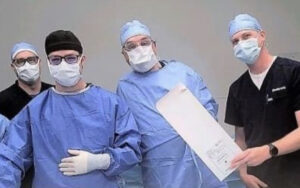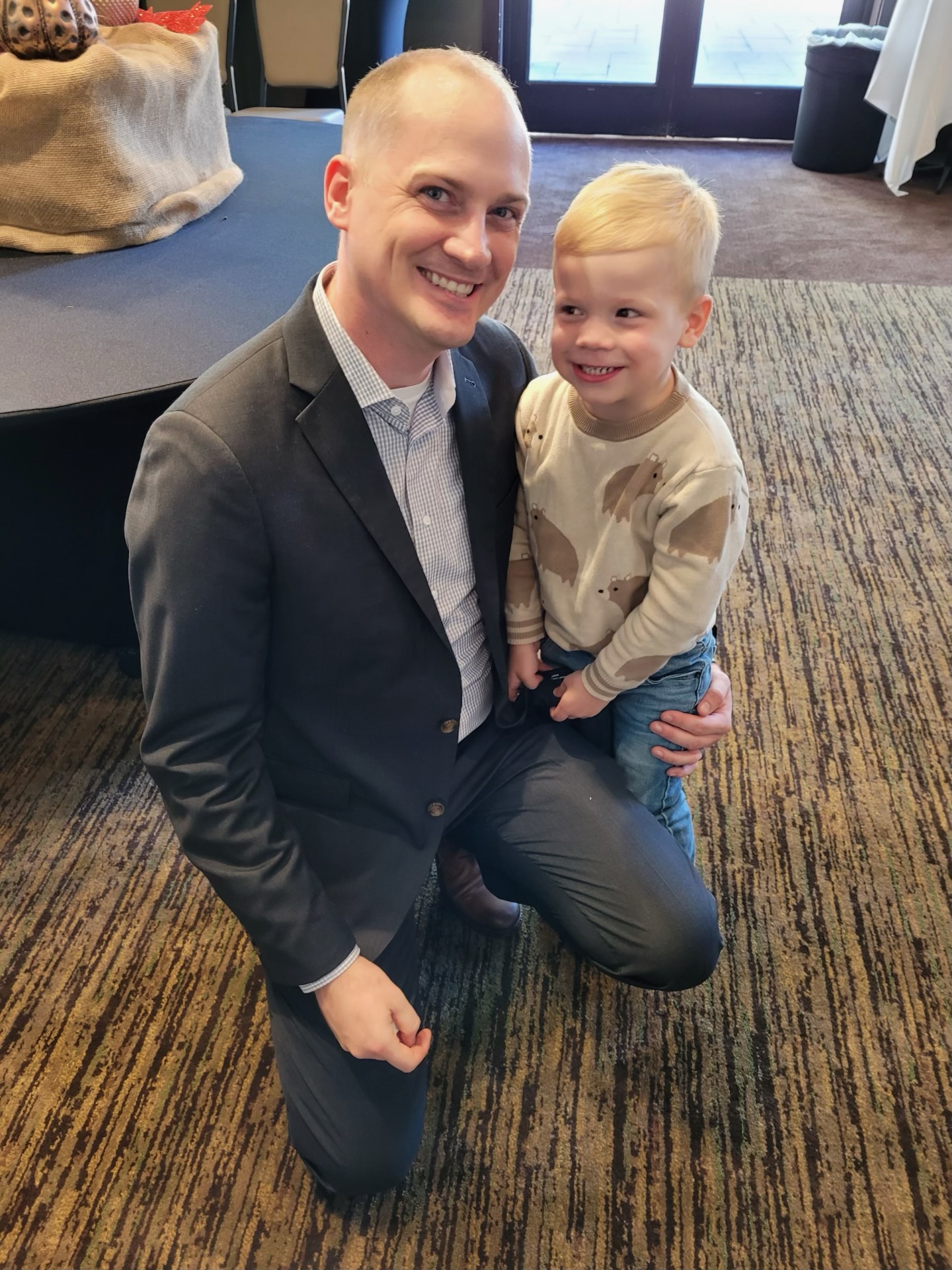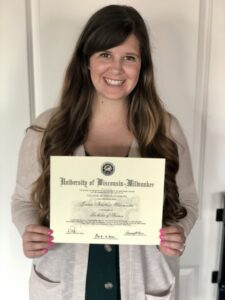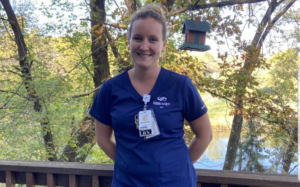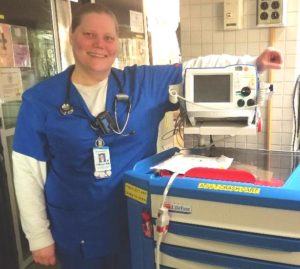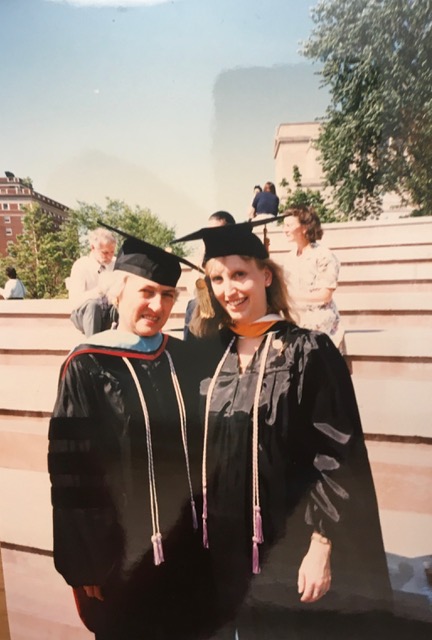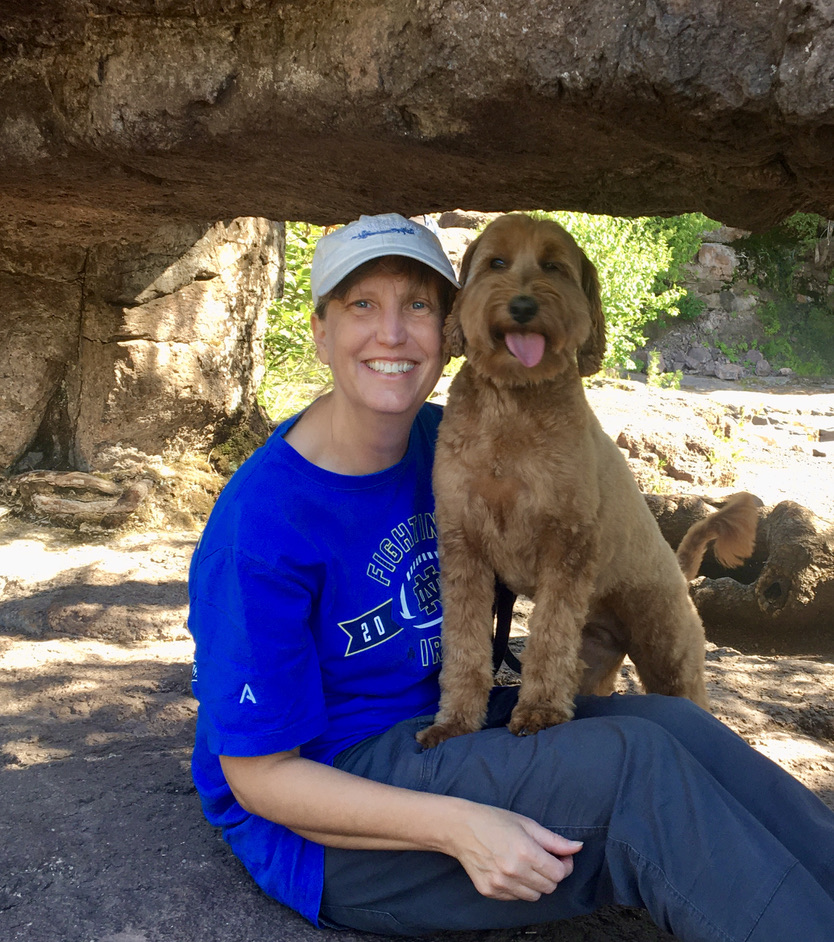When we last met with Aaron Apel in 2019, he had graduated from the UW-Milwaukee Bachelor of Science in Information Science and Technology (IST) program offered through UW Flexible Option.
The first UW Flexible Option applicant back in 2014, Aaron now works in a leadership role at UW-Madison Office of the Registrar. A father of three daughters and full-time IT professional at the time, his road to graduating in 2019 was a busy one, but the destination was more than worth the journey.
“You’re not obligated to take a full class load. You can take breaks if needed, but forward is a direction, and forward is progress. Any effort you can dedicate to and put into pursuing that degree, the UW Flexible Option is a great option to work at your own pace, apply the knowledge that you have, and actually apply the things that you’re working on currently.”
As UW Flexible Option celebrates its 10-year anniversary, we’re also celebrating adult learners like Aaron who found a convenient way to complete their degree and learn new skills.
We sat down with Aaron as he reminisced on his time in the IST program and how it prepared him to take on a new career opportunity.
What’s the first thing that comes to mind when you think about your time in the IST program?
I had taken quite a long road. Thinking back to when I first started the program, working full-time, a full-time parent, dad of three, just busy in all aspects of life. I was really grateful for the flexible opportunity to be able to work at my own pace.
 I can’t believe it’s been 10 years already. I remember the long nights doing coursework and studies and completing assignments while my daughters were at various sporting practices and so forth. It was a lot of work but worthwhile overall.
I can’t believe it’s been 10 years already. I remember the long nights doing coursework and studies and completing assignments while my daughters were at various sporting practices and so forth. It was a lot of work but worthwhile overall.
The thing that comes to mind when I look back is the hectic nature of life at that point, and it’s continued to be so. The kids have since graduated high school and college, and I’ve moved along in various roles at the University of Wisconsin-Madison. It’s a different kind of busy, but it’s also been a good reflection.
When you last met with us, you discussed how your degree would open new doors for your career. How has the program helped you with reaching your career goals?
One of my goals and drivers toward pursuing the Flex IST degree was to attain a higher level of understanding in the information systems and technology space, but also to earn a degree that would open doors for career advancement here at UW-Madison.
Without that bachelor’s degree, I had limited career progression options. In 2021, the Office of the Registrar underwent some organizational realignment, and as a result, there was a position that opened up. I had the opportunity to apply for a leadership role as the Assistant Registrar for Enrollment and Residency. Without my IST degree, I wouldn’t have qualified for the position.
“Without that degree, without completing the Flex IST program in 2019, I wouldn’t have had the opportunity to apply for the Assistant Registrar position, and then eventually my current role as Associate Registrar.”
Happily, I was the successful candidate in that recruitment. That was my first step into leadership and supervision, and my first experience leading a highly skilled team of five professionals focused on enrollment and residence for tuition purposes at UW-Madison in our Registrar’s Office.
I’m really grateful for that opportunity, and that set the stage for further advancement. In January 2024 another position became available, and I was fortunate to be selected as the Associate University Registrar for Student Services. Now, I lead a team of 19 professionals and broadened my portfolio of responsibilities. I now lead our student records team, in addition to enrollment, residency, and credit evaluation services here at UW-Madison, and am part of the senior leadership team for the Office of the Registrar and Division of Enrollment Management.
Without that degree, without completing the Flex IST program in 2019, I wouldn’t have had the opportunity to apply for the Assistant Registrar position, and then eventually my current role as Associate Registrar.
In what ways has your degree impacted the work you do at UW-Madison?
When I look back at some of the skills that I developed when pursuing the degree and how the completion of the degree helped me transition into this leadership role, I think the organization and time management skills that were needed to complete the degree were particularly impactful. The determination and dedication to getting the work done has helped me prioritize work and manage time in my current position.
Part of my portfolio in the Associate Registrar role is to oversee functional day-to-day activities in the Student Services area. We’re responsible for transfer credit evaluation, posting of transfer equivalencies, maintenance, upkeep, and support of our student enrollment system, maintenance and creation of student records, and residence determination for tuition purposes.
“The soft skills I learned, and the technical knowledge gained as part of my journey while pursuing my degree, set me up well for taking on these challenges and succeeding in higher education leadership.”
We update and maintain the student information system, post student degrees upon conferral, and coordinate the ordering and delivery of print and certified electronic diplomas. We’re responsible for enrollment and degree reporting, as well as issuing transcripts and enrollment credentials for all of our students at UW-Madison. We’ve got quite a few of them.
More in the leadership space, I’m responsible for setting the strategic direction of Student Services and providing assistance and advice on key policy initiatives at the university for our Deputy and University Registrar and other senior university administrators and leaders on campus. I work very closely with our academic deans and other campus leadership on a variety of projects.
I also serve as a business process expert, subject matter expert, product owner, and policy expert when leading our functional staff and collaborating with our technical teams on integrations, enhancements, and maintenance of our student information system and other ancillary software systems that are integrated with our platforms.
The soft skills I learned, and the technical knowledge gained as part of my journey while pursuing my degree, set me up well for taking on these challenges and succeeding in higher education leadership.
Having graduated in 2019, what changes have you seen in the IT industry compared to 5 years ago?
One thing I’ve noticed is the significant shift in higher education to software as a service (SaaS) platforms; vendor-provided solutions that fulfill the operational needs of the university. Specifically in relation to my focus around course enrollment, degree audit, degree clearance, course catalog management, and other functional areas.
There’s also been a pivot to cloud-hosted software versus on-premises software. A lot of the vendors in the space are transitioning away from client server on-premises installations of a software solution to cloud-hosted applications. We’re even seeing that in the software that we develop internally.
There was a point in time where mobile applications were all the rage. Everyone’s got a device in their hand, right? But there’s been a shift toward mobile responsiveness; developing an application that’s responsive to the size of the device you happen to be using, but having a single instance of that application.
More workplace-related, there’s been a significant shift in remote work and supporting the needs of our team and staff. It’s not just isolated to the IT industry, per se, but we’re seeing a change across the board in flexibilities around working from home and establishing remote work agreements.
Is there any advice you would give to the version of yourself who started the IST program in 2014?
I think my general advice would be, “Stick with it.” My journey in the Flex IST program was extended longer than it probably should have been. But again, life happens and circumstances change.
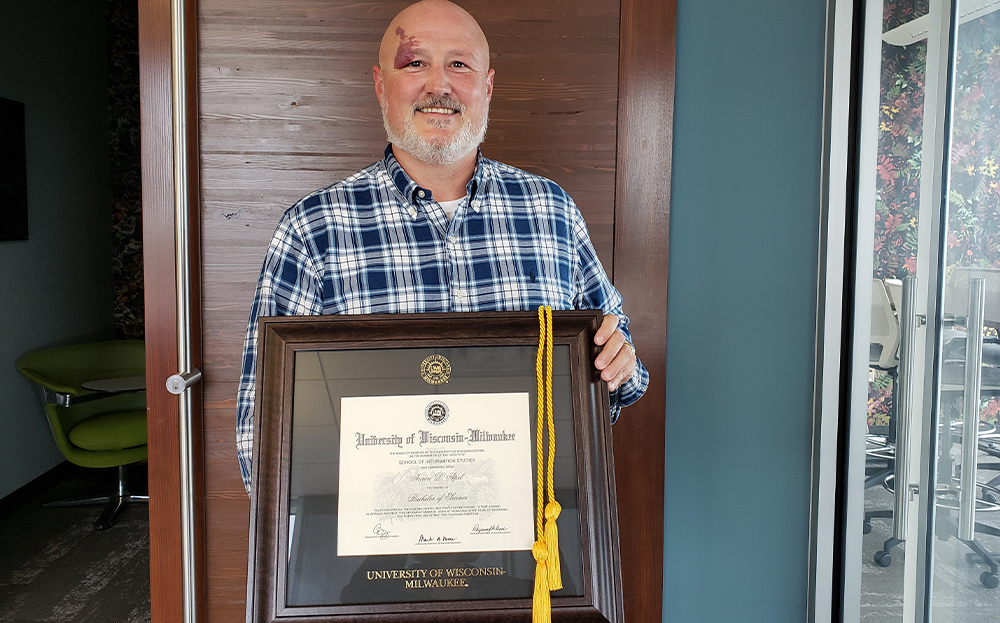 If you’re thinking about doing the program, it’s definitely worthwhile. I did end up taking a few semester-long breaks just because of ebbs and flows in capacity and life circumstances. But stick with it. It’s definitely worth it in the long run.
If you’re thinking about doing the program, it’s definitely worthwhile. I did end up taking a few semester-long breaks just because of ebbs and flows in capacity and life circumstances. But stick with it. It’s definitely worth it in the long run.
I wouldn’t have the opportunities, or be where I’m at today, if I had started the program and then dropped out for one reason or another. The staff, advisers, and folks working in the UW Flexible Option that administer the program are helpful and very understanding. I’m extremely grateful for the experience and the doors it has opened.
Want to learn more about the Information Science and Technology degree? Call an enrollment adviser at 608-800-6762 or send an email to flex@uwex.wisconsin.edu for more information.

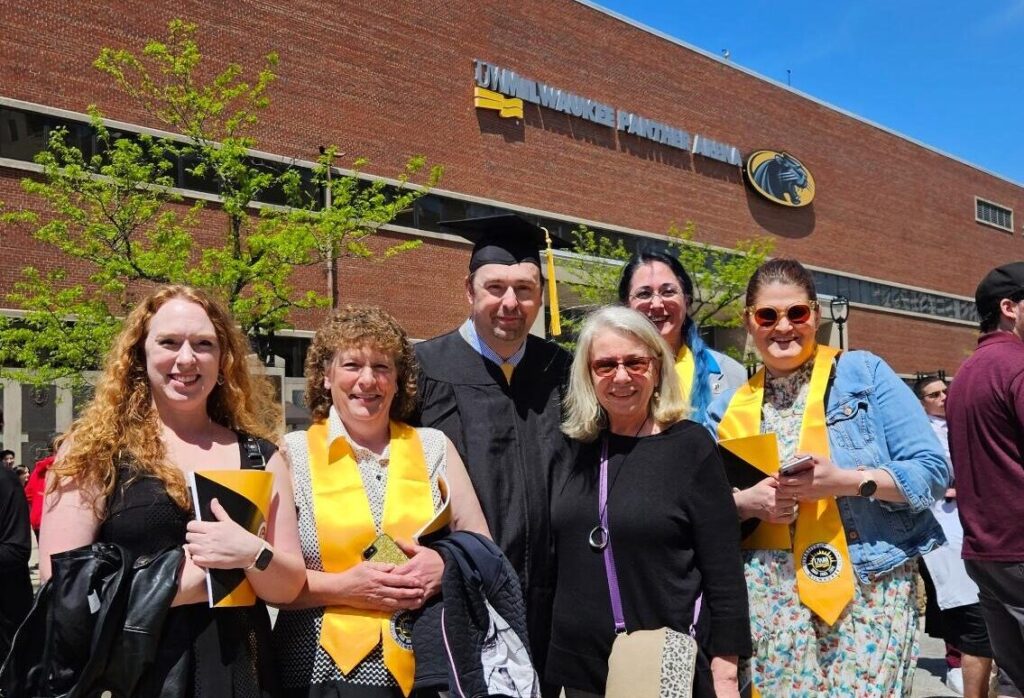
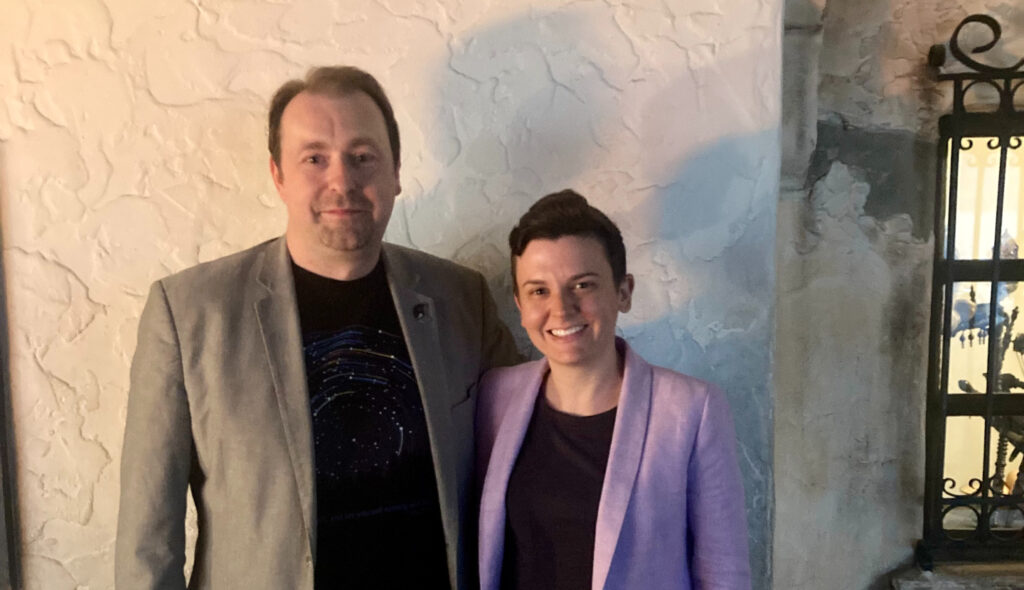
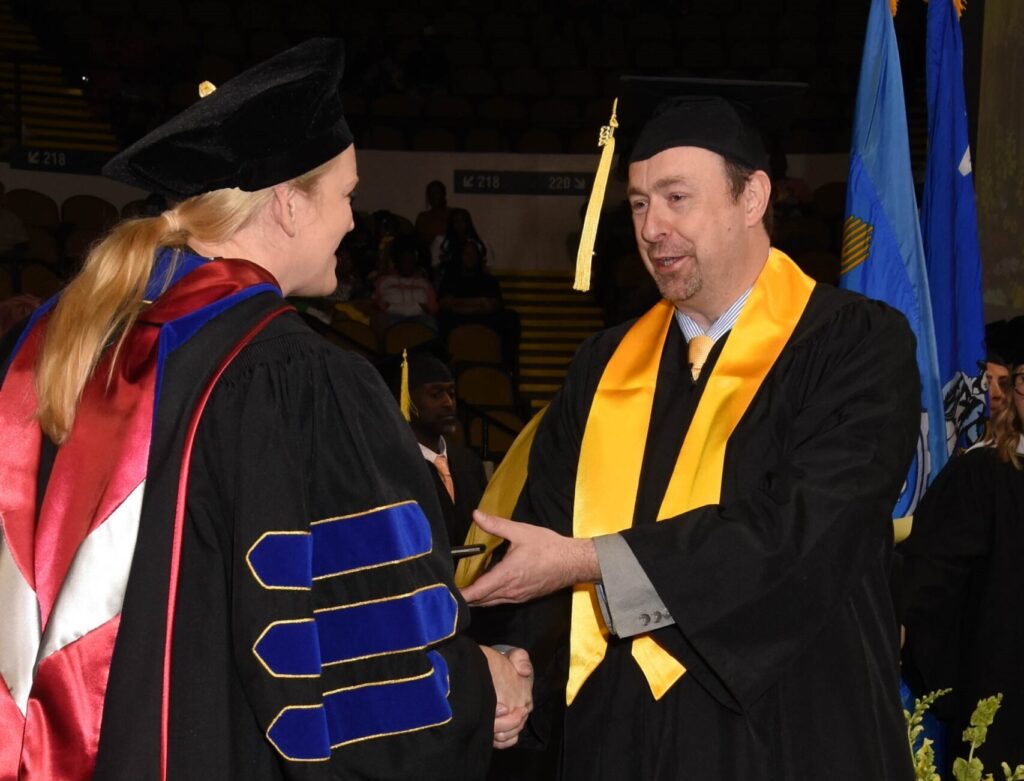
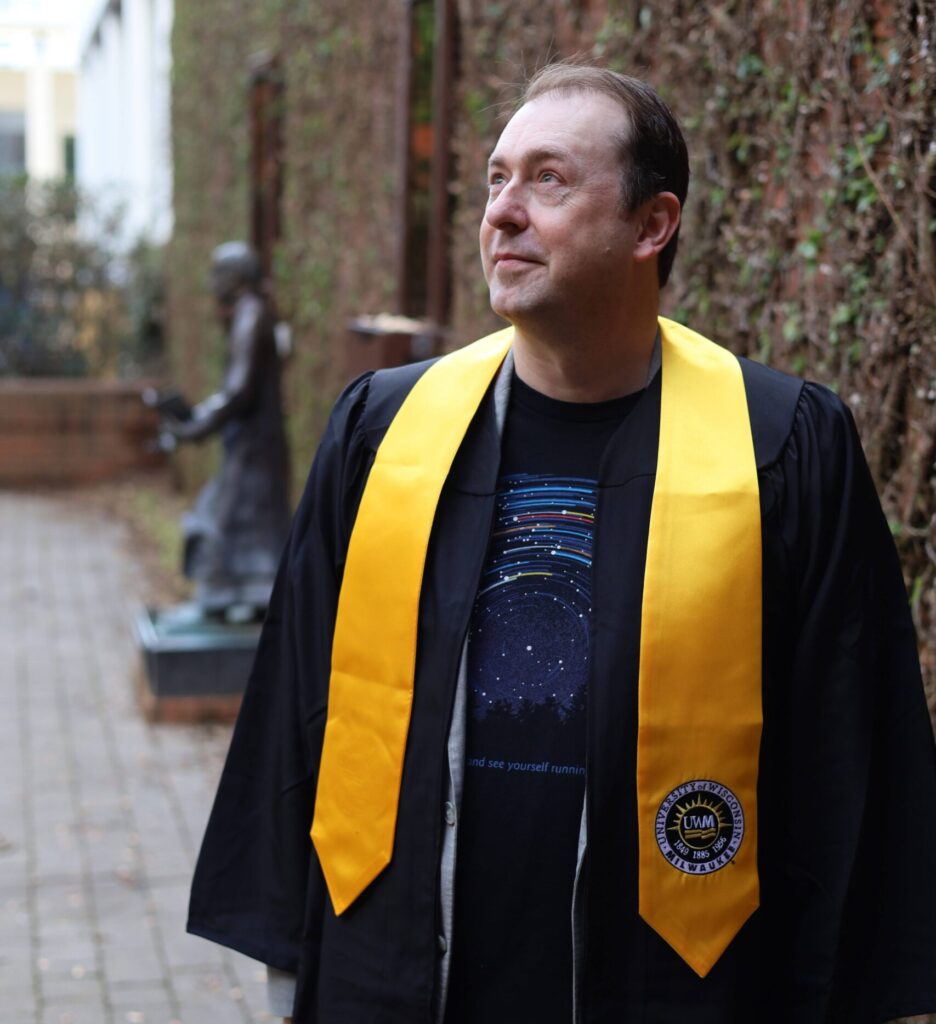
 While in the program, Michael championed the expansion of IT consulting services at Chortek’s new office in Washington, DC. Despite needing to commute from Wisconsin to DC for a full week each month, Michael made significant progress on his degree thanks to the UW Flexible Option. The firm has since divested of that office in order to focus on their southeastern Wisconsin home market.
While in the program, Michael championed the expansion of IT consulting services at Chortek’s new office in Washington, DC. Despite needing to commute from Wisconsin to DC for a full week each month, Michael made significant progress on his degree thanks to the UW Flexible Option. The firm has since divested of that office in order to focus on their southeastern Wisconsin home market.